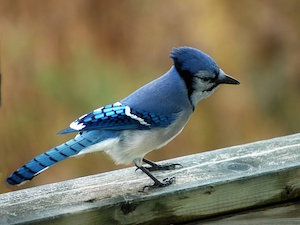Slips of the tongue
Why the mighty fail – lessons from Nokia South China Morning Post
Russians in Britain told to reveal their riches The Times
Australians now distrust the government, business and the media
Australia's trust in media at record low as 'fake news' fears grow ...Free speech fears after book critical of China is pulled from publication
Prominent Australian academic says he has been silenced by Chinese Government - China power
The Government Of Ukraine Tried To Ban A Book About Stalingrad, And Its Author Reflects On What That Means
from The Guardian (UK)
New surveillance tactics on the cards for tax time 2018 | Accountants ...

Is Democracy Really Such A Great Idea? Mob Rule?

"Over the past few years concerns about “unchecked” democracy and rule by the people have exploded—but such concerns have been around as long as democracy itself. The ancient Greeks commonly equated democracy with mob rule. Aristotle, for example, worried about democracy’s tendency to degenerate into “chaotic rule by the masses” and in Plato’s The Republic, Socrates argues that given power and freedom the masses will indulge their passions, destroy traditions and institutions, and be easy prey for tyrants. Classical liberals, meanwhile, lived in mortal fear of democracy, convinced that once given power 'the people' would trample the liberties and confiscate the property of elites." …Read More
Cryptocurrencies are among the largest unregulated markets in the world. We find that approximately one-quarter of bitcoin users and one-half of bitcoin transactions are associated with illegal activity. Around $72 billion of illegal activity per year involves bitcoin, which is close to the scale of the US and European markets for illegal drugs. The illegal share of bitcoin activity declines with mainstream interest in bitcoin and with the emergence of more opaque cryptocurrencies. The techniques developed in this paper have applications in cryptocurrency surveillance. Our findings suggest that cryptocurrencies are transforming the way black markets operate by enabling “black e-commerce.”
Here is Sex, Drugs, and Bitcoin: How Much Illegal Activity Is Financed Through Cryptocurrencies?, by Foley, Karlsen, and Putniņš
A fiasco too farcical for Utopia: Turnbull wants terminations
The most recent of the ABC's "cabinet files" was from early 2014, according to the PM, who says the fiasco is sillier than satire. It's hard not to agree when you find out which ABC editorial boss received the lost documents.
NSW
councils applaud auditor-general’s first foray into their sector.
Councils say they’ve been waiting years for reform, and the state government has been dragging its feet.
Councils say they’ve been waiting years for reform, and the state government has been dragging its feet.
Looking for My Wallet and Car Keys sung by Tom Rush ...
Government crackdown on 'McMafia' organised crime sees Russian billionaires ask Kremlin to return home
Democracy takes many forms, some of them democracy in name only. Confusion and misappropriation complicate the public struggle for the democracy to come, but this challenge is always unending
Catching the money man
How Australian taxpayer dollars and a fake drug cartel helped bring down the world's most wanted money launderer.
IT WAS already a high-risk strategy: hand more than $1 million to a known criminal and hope to catch him laundering it.
What made the idea perilous, however, was the fact the money belonged to Australian taxpayers. And the criminal, holed up in Dubai, was notoriously elusive.
"My **** was in the sling," said Richard Grant, a career cop from Melbourne.
The plan was "lawfully audacious", but it was the only plan that might work.
For the first time, he has explained its intricate detail to Four Corners.
At the time of the operation, Grant was in charge of covert investigations at the Australian Crime Commission. From a non-descript building in Canberra, the agency operated in utter secrecy, and it wielded extraordinary powers. It could jail those who failed to answer its questions.
Grant already knew which questions he wanted answered: Who was laundering drug money for bikies? Where did they hide their cash? How did they get payment overseas for the next shipment?
"What we needed to do," he said, "is to go up the tree."
The billion dollar bust
How Australian taxpayer dollars and a fake drug cartel helped bring down the world's most wanted money launderer.
IT WAS already a high-risk strategy: hand more than $1 million to a known criminal and hope to catch him laundering it.
What made the idea perilous, however, was the fact the money belonged to Australian taxpayers. And the criminal, holed up in Dubai, was notoriously elusive.
"My **** was in the sling," said Richard Grant, a career cop from Melbourne.
The plan was "lawfully audacious", but it was the only plan that might work.
For the first time, he has explained its intricate detail to Four Corners.
At the time of the operation, Grant was in charge of covert investigations at the Australian Crime Commission. From a non-descript building in Canberra, the agency operated in utter secrecy, and it wielded extraordinary powers. It could jail those who failed to answer its questions.
Grant already knew which questions he wanted answered: Who was laundering drug money for bikies? Where did they hide their cash? How did they get payment overseas for the next shipment?
"What we needed to do," he said, "is to go up the tree."
The billion dollar bust
Money exchange with links to Dubai Government identified as hub for billion-dollar laundering empire
Offshore accounts, a fake drug cartel, and handing over $1m to a notorious criminal
